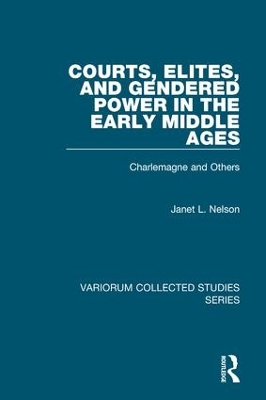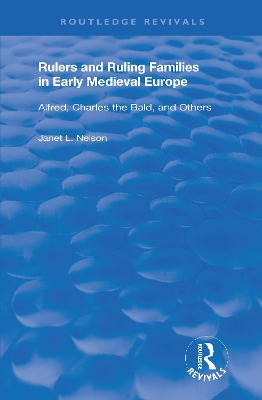Variorum Collected Studies
3 total works
Courts, Elites, and Gendered Power in the Early Middle Ages
by Janet L. Nelson
Published 28 June 2007
A major theme in the volume of articles by Janet Nelson is the usefulness of gender as a category of historical analysis. Papers range widely across early medieval time and geographical as well as social space, but most focus on the Carolingian period and on royalty and elites. The workings of dynastic political power are viewed in social as well as political context, and the author explores the realities of gendered power, which while constraining women, gave them distinctive possibilities for agency. These papers offer new perspectives on the Carolingian world in general and on Charlemagne's reign in particular.
First published in 1999, the ideas and practices involved in early medieval royal family politics are the central theme of this collection of papers by Janet L. Nelson. She first examines King Alfred of Wessex (871-99) in the context of Anglo-Saxon conditions and in comparison with his Carolingian contemporaries. When tension and conflict within the royal family are highlighted, she argues that Alfred’s talents and political thought emerge the more impressively. A second group of papers deals with the reign of Charles the Bald (840-77): his patronage of learning and his interest in Spanish martyrs are set in political context, while contemporary historiography is considered as a form of counsel and critique. The third section reflects Nelson’s growing interest in the political importance and gendered roles of royal women. Consecration rites are analysed as ritual expressions and factors in the shaping of the queenship, while two final papers also examine the making and unmaking of Frankish kings and princes.


